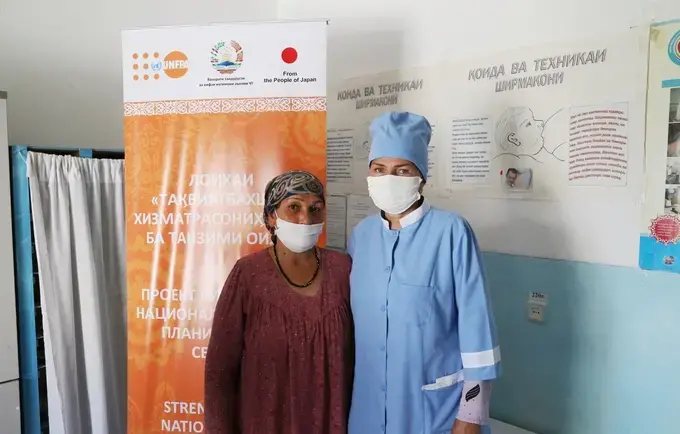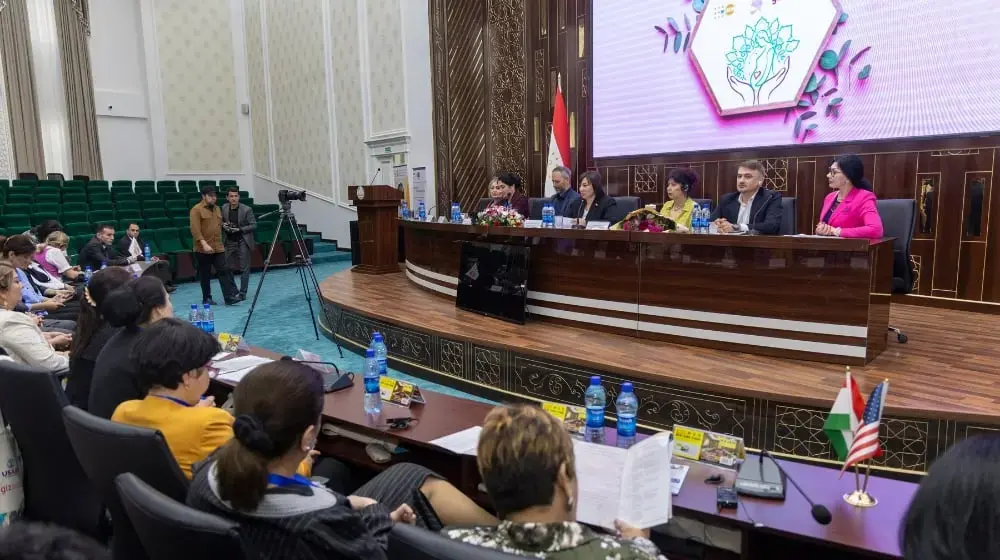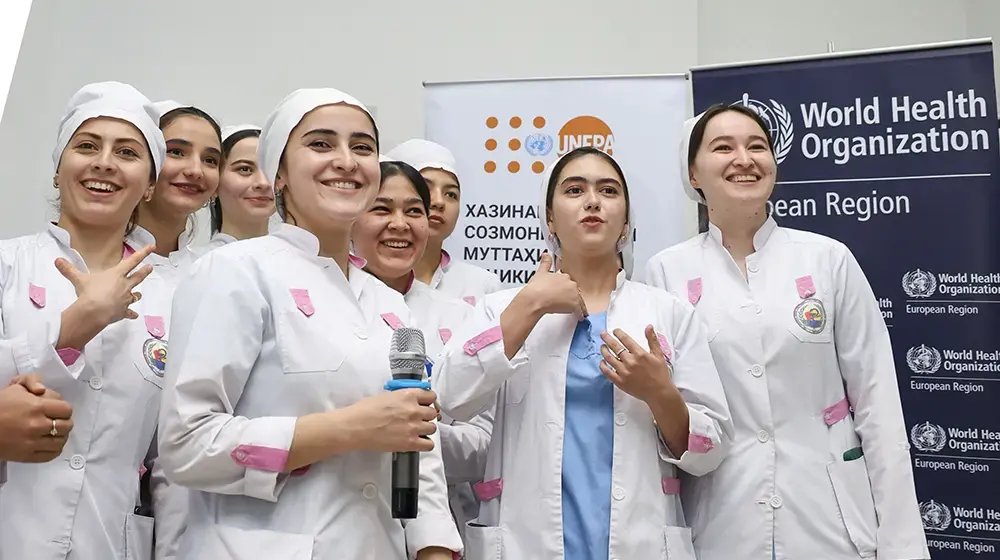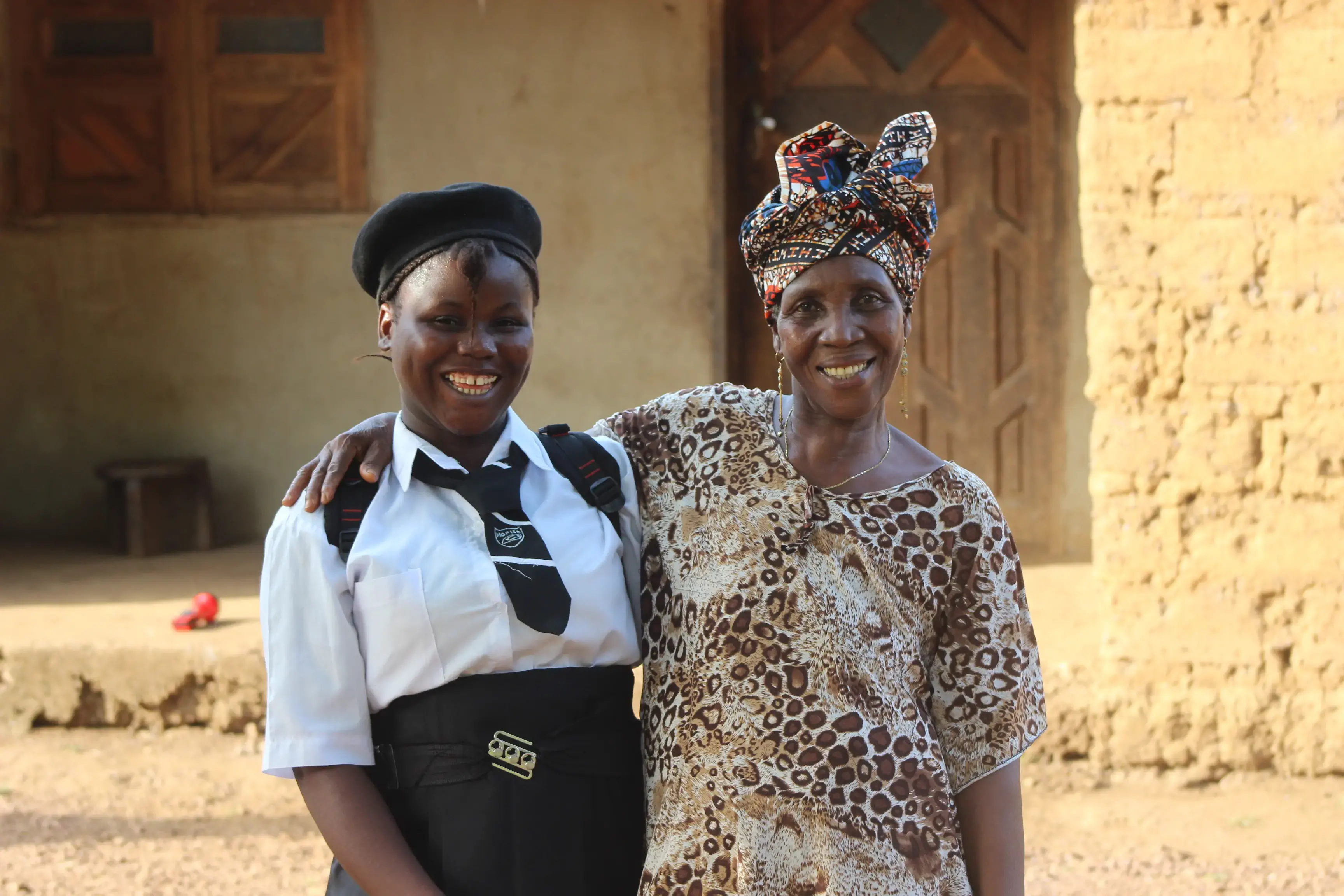This component focuses on promoting universal access to sexual and reproductive health and rights, through transformative development agenda that is universal, inclusive, human rights-based and equitable. UNFPA advocates for the development of policies and strategies in reproductive health, family planning and maternal, child and adolescent health, ensuring access to reliable information, counseling to prevent unintended pregnancies, ensuring safe pregnancy and childbirth, and preventing sexually transmitted diseases and the spread of HIV infection.
• Maternal Health Project:
The main goal of the project is to reduce maternal mortality by improving universal access to quality reproductive health (RH) services through the implementation of what is behind the numbers and Effective Perinatal Care initiatives, and also contributes to strengthening emergency obstetric care services, introducing national standards and clinical protocols, and the supply of medical equipment for maternity hospitals.
As part of promoting the global initiative to reduce preventable diseases and mortality among women, UNFPA is supporting the Ministry of Health and Social Protection of Population of the Republic of Tajikistan in the implementation of the Cervical Cancer Prevention Program for the early detection and treatment of precancerous diseases of the cervix.
• Family Planning project:
Family planning (FP) and reproductive health activities focus on strengthening the capacity of health workers and developing skills to provide high-quality human rights-based FP services, including in emergencies. The main goal of the project is to improve the access of the population to quality reproductive health services, in particular to family planning services.
The project offers activities to enhance policy dialogue and consultation in the area of family planning and sustainable financing. Special attention paid to the issues of capacity building, knowledge management and service delivery, supplying and expanding access to modern methods of contraception, strengthening the logistics and contraceptive management system.
Particular attention paid to the development of emergency preparedness and response plans, creation of a strategic stockpile of necessary RH equipment and medicines in response to emergencies, as well as the supply of medical equipment and medicines for reproductive health centers.








